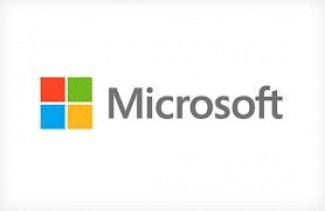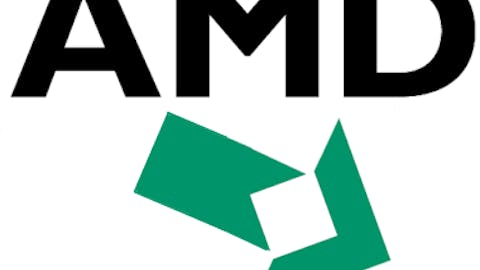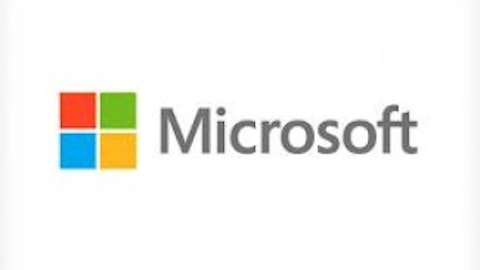Microsoft Corporation (NASDAQ:MSFT) is out with a new ad for its upcoming video game console, the Xbox One. The ad, which runs a full 30 seconds, ignores the Xbox’s video game capabilities entirely. Naive viewers, unaware of the Xbox brand, would have no idea that the Xbox One was even capable of playing video games.
Instead, Microsoft Corporation (NASDAQ:MSFT) has chosen to focus on the device’s TV capabilities — and here, the Xbox One shines. Although Microsoft may have driven some of its core gaming customers away, the Xbox One is likely to find itself in the homes of both gamers and non-gamers alike.
Xbox One and Fantasy Football
Fantasy sports are big business. According to the Fantasy Sports Trade Association, well over 33 million people play, and they spend almost $2 billion a year to do it. When you add in the cost of complimentary services (like DIRECTV (NASDAQ:DTV)‘s NFL Sunday Ticket) fantasy sports may generate $5 billion per year. Fantasy Football represents the vast majority of that spending, as it has almost 80% of the total fantasy sports player base.

The ad (which can be viewed on YouTube) shows various groups of people watching NFL games with the Xbox One. By attaching the device to their cable box, Xbox One owners can enjoy an enhanced viewing experience. For NFL games, Fantasy Football players will see their team’s updates highlighted alongside the current game.
Of course, it isn’t just the NFL — this feature also works for other sports, like the NBA, and the even non sports fans will get some value from the Xbox One’s TV features. Using the included Kinect, Xbox One owners can control their TV with voice commands and hand gestures, in addition to receiving personalized show recommendations and trending programs.
Gamers are a niche market
Members of the gaming community have criticized Microsoft Corporation (NASDAQ:MSFT) for some of the decisions it’s made in regards to the Xbox One. In fact, Microsoft has been forced to backpedal, altering some of the Xbox One’s features prior to its launch.
But console gamers are a niche market. From its launch in 2005 to this past June, Microsoft Corporation (NASDAQ:MSFT) sold less than 80 million Xbox 360s. For comparison, almost 240 million TV sets were sold last year — and that was down from 2011.
So far, Sony Corporation (ADR) (NYSE:SNE) has steadfastly pushed its upcoming PlayStation 4 as the premiere gaming machine — that’s won it accolades among core gamers, but that market is increasingly irrelevant. Nintendo’s Wii — despite being far less powerful than its competition — was able to outsell both the PlayStation 3 and Xbox 360. The Wii’s innovative controls appealed to casual gamers, and endeared it to consumers who would’ve otherwise never bought a video game console.
Sony could follow with a TV strategy of its own
Obviously, Sony Corporation (ADR) (NYSE:SNE) has been making TVs for decades, and its high-end Bravia TVs do offer smart TV features, though these pale in comparison to what Microsoft Corporation (NASDAQ:MSFT) is offering with the Xbox One. Still, Sony could be planning to work its PlayStation into its larger TV strategy in the near future.
The Wall Street Journal reported last month that Sony Corporation (ADR) (NYSE:SNE) has reached a preliminary deal with Viacom, Inc. (NASDAQ:VIAB) to carry its channels over the Internet. Sony plans to launch an Internet-based paid-TV service next year, allowing consumers to beam channels directly to Sony’s devices, including its PlayStation.
In addition, Sony Corporation (ADR) (NYSE:SNE) recently unveiled the PS Vita TV, a tiny, sub-$100 device that plays PlayStation Vita games, streams online video content, and syncs with the PlayStation 4.
Will consumers pay $500 for a set-top box?
But while TV features could make both consoles attractive to non-gamers, price tags stand as an obvious challenge. The Xbox One will retail for $499, and to access its online features, owners will have to subscribe to Xbox Live ($60 per year). That’s a significant hurdle.
Still, there’s evidence that consumers are willing to shell out big bucks for premium TV interfaces: Consider TiVo Inc. (NASDAQ:TIVO). The company’s latest DVR, the Roamio, starts at $199, and a full-featured Roamio Plus retails for $399. In addition to that, TiVo owners have to pay a $15 per month subscription fee ($180 annually).





